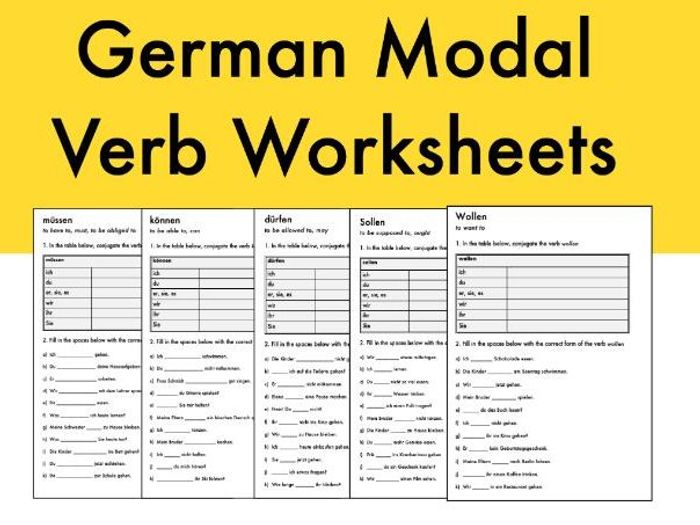
Also, as most modal verbs are irregular and come with a shift in the vowels, the “ü” of “müssen” becomes an “u” for the singular persons in the present tense. The first-person singular (ich) and the third-person singular (er, sie, es) share the same conjugated verb form (as you can see in the table below). Usually, there is a difference between the conjugation of all singular persons in the general German verb conjugation, but this does not apply to the modal verbs. However, when talking, people tend to use modal verbs without a second verb, but you should never (!) do that when writing or trying to pass a German exam because it is a mistake.Ī: “Musst du wirklich schon gehen?” ( “Do you really have to go already?”) This means that if you use the verb “müssen,” you always need to add a second verb to your sentence because otherwise, it is grammatically wrong. The verb “müssen” is part of the modal auxiliary verb group. answers)Ĭonversation exercise – speaking with modal verbs in the present tenseĬonversation exercise – speaking with modal verbs in the past tenseĪ-Grammar: Practice German grammar German (incl. answers)Įxercise – German modal verbs in the past tense (incl. Recommended study materials on the topic:Įxercise – German modal verbs in the present tense (incl. To improve your skills, check out the self-studying book A-Grammar: German grammar exercises for levels A1 & A2, which includes all grammar aspects, English descriptions, explanations, and an answer book. To have a good foundation, you should know that the German verb “müssen” means “to must” or “to have to,” and the translation of “dürfen” is to “be allowed to.” Therefore, this article aims to explain the difference between “müssen” and “dürfen” in German.



Yet, many students find it confusing to choose the right verb. When studying German, you will get to know the two verbs “müssen,” and “dürfen” quite quickly as people constantly use them.


 0 kommentar(er)
0 kommentar(er)
